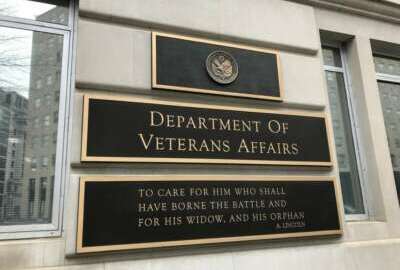
VA is helping veterans seeking a career in high technology
A new GI Bill offering from the Department of Veterans Affairs aims to help veterans seeking a career in high technology. Those eligible can get matched up with...
Best listening experience is on Chrome, Firefox or Safari. Subscribe to Federal Drive’s daily audio interviews on Apple Podcasts or PodcastOne.
A new GI Bill offering from the Department of Veterans Affairs aims to help veterans seeking a career in high technology. Those eligible can get matched up with nearby training providers. For details, Federal Drive with Tom Temin turned to the executive director of the education service, Charmain Bogue.
Interview transcript:
Tom Temin: Ms. Bogue, good to have you on.
Charmain Bogue: Thank you. Thank you for having me. Great to be here to talk about the Vet Tech Program.
Tom Temin: So tell us more about this program, I would have thought that it would be something that had been going on for decades, considering how much growth there has been in high technology. What brought this about?
Charmain Bogue: The Veterans Employment To Technology Training Courses Program, known as Vet Tech, is a five year pilot program that was authorized a couple years ago in the Harry W. Colmery Veterans Educational Assistance Act. And we actually just launched a program in 2019. That tech is really a unique program for VA, because payments to training providers like coding boot camps are tied to veterans hitting certain milestones, to include securing employment in the field that they basically are studying in. And this program provides veterans the opportunity to enroll in high technology, non degree accelerated learning programs that provide technology training in high demand occupations, such as computer science, computer programming, data processing, information science or media applications. So really, we’ve seen a lot of tremendous success around this program. And I’m really excited to be here today to talk about the program.
Tom Temin: Did you say they’re non degree or are they degree granting?
Charmain Bogue: They’re non degree?
Tom Temin: I see. And so what are some of the types of providers that offer this type of training, I mean, these would be like, for example, technical schools or some of the for profit training programs?
Charmain Bogue: Well, this is really focused on non traditional programs that would not normally receive VA benefits. So right now, we actually have over 30 training providers, and to name of few, Divergence Academy which is in Dallas, Texas, Code Fellows, which is in Seattle, Washington. Also, we have Full Stack Academy, that’s in New York, and then another company, like Galvanize, which is all over the United States. But to find the full list of training providers that is absolutely available on our website at VA.gov.
Tom Temin: And you say these are non traditional types of providers, just tell us what they’re like, give us a couple of examples.
Charmain Bogue: Yeah, I mean, they’re pretty intense programs when you think about it. I mean, these are short term programs that can go from 6 to 22 weeks, you have students who are in class from nine in the morning till five in the evening, training five days a week in some of these programs, but it really pays off at the end, because these training providers were connected with the IT field and the employment industry to be able to connect with employers such as Microsoft, or when those type of companies to really help folks to obtain employment in a high demand occupation, and to come out with a really good salary at the end of the day.
Tom Temin: So it sounds like those employers are less interested in specific degrees than in the actual skills people have that come to them.
Charmain Bogue: Yes, that’s a great point. We hear this all the time that yes, the education is important, but a lot of times when these interviews, they’re asking the applicants for an actual portfolio. And in these training programs, I will tell you that they’re not only training these folks on understanding coding and all the IP applications, but they’re also helping them to understand how to build a portfolio and build a product that they can present to an employer to show exactly what they can deliver if they are hired by that employer.
Tom Temin: And I imagine that they do so in some of the modern languages that even the federal government is not up with yet. So this really would have good private sector appeal.
Charmain Bogue: Absolutely, absolutely. It is. I will tell you this program is really popular to the point where we have funding caps each year and we’ve exhausted those funding caps due to the popularity of folks leaning towards going to this type of program, versus considering a two year or four year degree program.
Tom Temin: Do you have an estimate of how many people have taken you up on this particular program?
Charmain Bogue: Yes, absolutely. Like I said, this program is immensely popular with both veterans and training providers. And it really gives our veterans an opportunity to develop or enhance a skill in a high demand field with no charge to individuals GI Bill entitlement. And since launching the program, we’ve actually delivered over 18,000 certificates of eligibility, we’ve told over 18,000 individuals that they can leverage this program. And to date, we’ve had nearly 2,000 students who are actually participating in the program. And we know there’s more interest out there in terms of participating in this program. Our application numbers and basically had a steady state especially through COVID-19 pandemic and the high unemployment rates. We’ve definitely seen individuals flocking towards this program
Tom Temin: And are the educational offerings available online? I’m presuming since they’re high tech, they must be.
Charmain Bogue: In some cases, they are available online. I will tell you some are in person because of the intensity of the program, some do require in person activity, not just for the one on one interaction with the teacher, but also with their peers, because they’re learning together. Last year we went on this national school tour, and we visited some of our Vet Tech locations and we saw that these training providers were in very intimate settings, you had about 20 students, maybe in a cohort, who were all working together to try to learn the coding or learn the program that they’re in, understand how it works, and really build a relationship and a community within that school. So it’s just more than just learning a particular curriculum, it’s also building a network.
Tom Temin: And are vets eligible that might be looking for second careers that people that might have had an earlier GI benefit and they became something that either because of economic stress or technological change, they no longer have work that could retrain as coders and so on?
Charmain Bogue: Yes, actually, for this program, you only need one day of entitlement across any one of our five education programs to be eligible. So you could have already went to school using your Montgomery GI Bill benefits, but you realize you need to get certified in a particular area. Or maybe you are thinking about changing career paths, as long as you have that one day unexpired entitlement, then you can come and apply to us, and we will be able to help you to leverage the Vet Tech program. So it really is a great opportunity, not just for folks who are just going into the field, or just starting out, but also those who are looking to change career paths, or looking to maybe enhance their existing skills.
Tom Temin: So you could have someone not just simply a recent vet where they skew younger and would be familiar with this type of work, but perhaps even going back to some of the earlier conflicts — I mean, are there any Vietnam era people taking advantage of it?
Charmain Bogue: That is correct, you could have a Vietnam era veteran taking full advantage of this program. We still actually have one program that is geared towards the Vietnam era population. So they could absolutely take advantage of this program if they wanted to. I really want folks to understand this is not a just about the post 911 GI Bill era. This is about all areas and they can come in the door and find out if they’re eligible.
Tom Temin: Now high technology we’ve been talking about basically computer science and computer engineering. What about some of the biotech and some of the other emerging fields that are also high tech, do you think you might plan similar programs for those fields?
Charmain Bogue: We would love to see additional programs in that space. So some of those other high demand, occupation or high demand areas. One program we do have that was launched also in the Harry W. Colmery Veterans Educational Assistance Act is called our STEM scholarship program. And it actually helps individuals in STEM related degree programs at a traditional school, so a four year college degree program, and basically so we can provide an additional nine months of benefits if someone is burning hot on their entitlement and they really need help crossing the finish line to complete their undergraduate degree program, then they could leverage that STEM scholarship program. So we are seeing more programs come about in our space that are tailored to what is happening in the market.
Tom Temin: I must say you sound pretty enthusiastic about all of this personally.
Charmain Bogue: I am enthusiastic. The GI Bill program is already an amazing program and opportunity for individuals. We service nearly 1 million servicemembers, veterans, independents in our space. So I’m really excited to see more tailored programs based off of what’s happening in the market so we can really meet the demands for students and really prepare them to integrate back into society. It’s one thing where students saying I think I want to go X, Y, and Z, but it’s another if we’re able to help them to say we’re seeing these particular trends, we’re building programs around that and we’re here to help.
Tom Temin: Charmain Bogue is executive director of the GI Bill Education Service at the Veterans Benefits Administration. Thanks so much for joining me.
Charmain Bogue: Thank you for having me. Really appreciate it.
Copyright © 2025 Federal News Network. All rights reserved. This website is not intended for users located within the European Economic Area.
Tom Temin is host of the Federal Drive and has been providing insight on federal technology and management issues for more than 30 years.
Follow @tteminWFED
Related Stories

After years of practice, VA says its innovation ecosystem was ready-made for the pandemic




